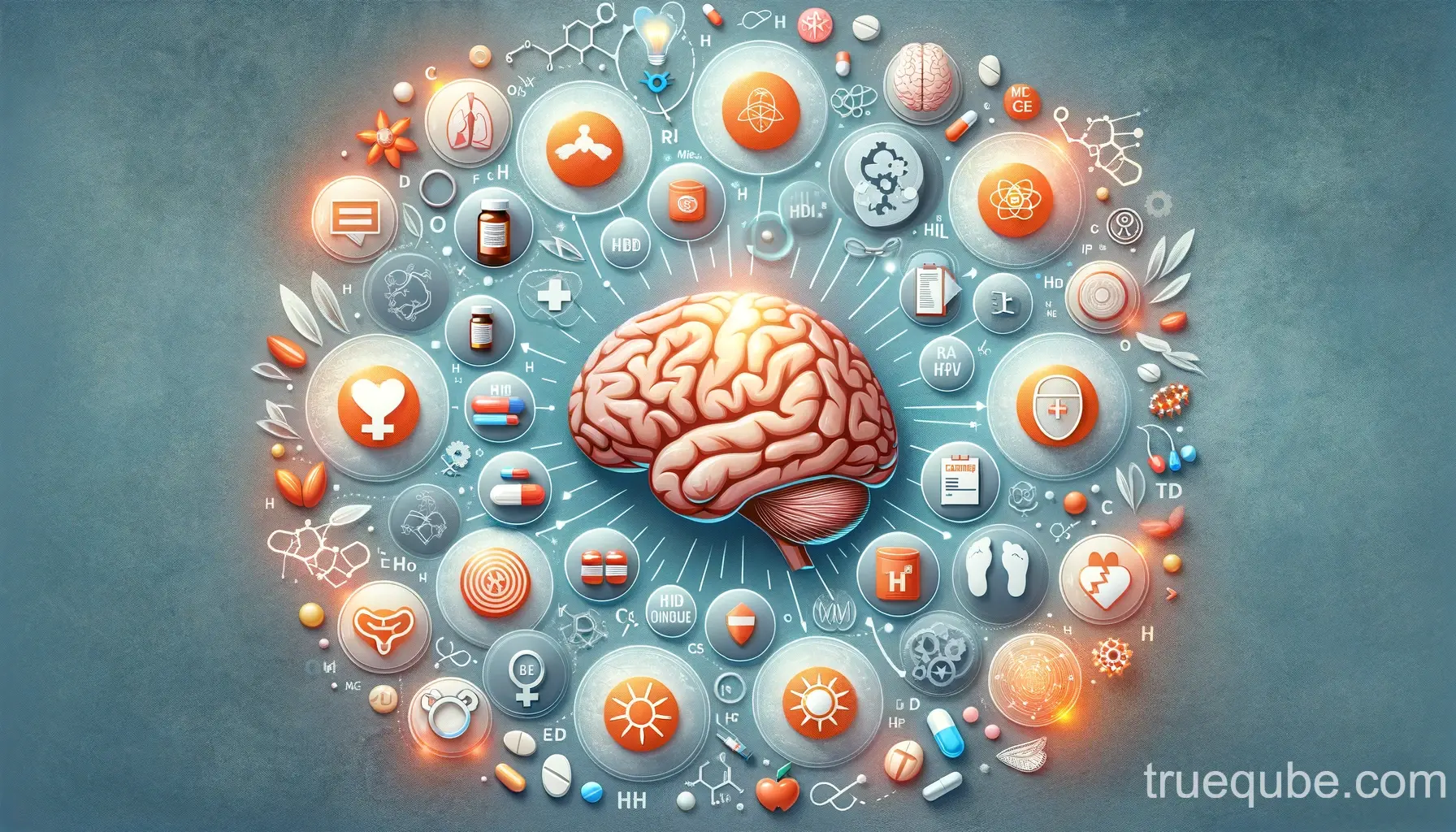Impact of Hormonal Changes on Mental Health – Treatment Approaches
The role of hormones in mental health is a complex yet crucial aspect of overall well-being. Understanding these dynamics, especially through the lens of concerns, allows for more targeted and effective treatment approaches from brands like Scienceandhumans. While hormones are typically associated with physical processes, their impact on mental wellness is profound and multifaceted. This article delves into how these biological substances influence mental health and explores modern treatment approaches, including modern hormone treatments.
Hormonal Fluctuations: A Trigger for Mental Health Shifts
Hormones, the body’s chemical messengers, are crucial in regulating mood, emotions, and cognitive functions. Fluctuations in hormones like estrogen, testosterone, and cortisol can trigger changes in mental health. For instance, estrogen affects neurotransmitters that are important for controlling mood, such as dopamine and serotonin. Anxiety, despair, and mood swings can result from low estrogen levels, which are prevalent throughout menopause or during the menstrual period.
Moreover, the imbalance of thyroid hormones can also contribute to mental health disorders, emphasizing the need for a comprehensive understanding of hormonal impact. Understanding these hormonal dynamics is vital for developing effective mental health interventions.
Adolescence: A Hormonal Roller Coaster
Adolescence marks a period of significant hormonal upheaval, impacting teenagers’ mental health. The surge in hormones like testosterone and estrogen can contribute to mood swings, anxiety, and an increased risk of depression. Recognizing the role of these hormonal changes is crucial in understanding and supporting adolescent mental health. These hormonal fluctuations can also exacerbate existing mental health conditions or trigger new ones, making adolescence a critical time for mental health monitoring and support.
Stress Hormones and Their Psychological Impacts
Cortisol, often dubbed the stress hormone, has a direct impact on mental health. Chronic stress leading to prolonged cortisol secretion can contribute to mental health issues like anxiety and depression. Understanding the cortisol-mental health link is essential for developing effective stress management strategies. Elevated cortisol levels over time can also lead to physical health issues, further complicating mental health conditions. To preserve both physical and mental well-being, it is essential to learn stress management and cortisol regulation techniques.
Pregnancy and Postpartum: A Hormonal Whirlwind
Significant hormonal shifts characterize pregnancy and the postpartum period. These changes can affect a woman’s mental health, contributing to conditions like postpartum depression. Recognizing and addressing these hormonal influences is vital in providing adequate support and treatment to new mothers.
The hormonal changes during these periods can also impact the woman’s overall sense of well-being and identity, making emotional support and understanding from family and healthcare providers essential. Tailored treatment and support during this time can significantly improve the mental health outcomes for new mothers.
Modern Hormone Treatments: Revolutionizing Mental Health Care
Modern hormone treatments have emerged as a promising approach to managing mental health issues linked to hormonal imbalances. These treatments involve the use of medications or therapies to balance hormone levels, thereby alleviating mental health symptoms. This approach underscores the significance of a holistic understanding of mental health, acknowledging the role of biological factors alongside psychological ones.
These treatments, when combined with other therapeutic approaches like counselling and lifestyle changes, can offer a comprehensive solution to those struggling with hormonal-related mental health issues. Mental health care’s future lies in integrative approaches, blending the latest scientific advancements with personalized care.
Conclusion
The role of hormones in mental health is a complex yet crucial aspect of overall well-being. Understanding these dynamics allows for more targeted and effective treatment approaches like those from Scienceandhumans. Embracing modern hormone treatments marks a significant step in addressing mental health issues arising from hormonal imbalances, paving the way for a more holistic approach to mental wellness.
As people continue to unravel the complexities of the human mind and body, such integrated treatment strategies will become increasingly vital in promoting mental health and well-being.






